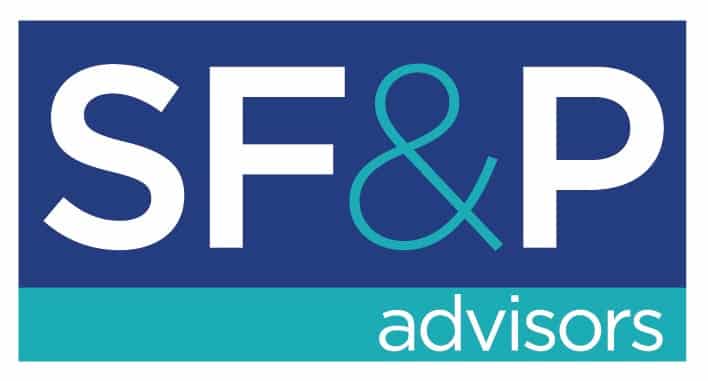As the demand for skilled HVAC professionals continues to grow, it’s crucial for businesses to invest in their workforce’s development through HVAC business training. Thanks to advancements in online education, acquiring professional HVAC skills has never been more accessible. But how do you choose the right training program? This blog post explores the benefits of online HVAC business training and offers guidance on building a skilled team, enhancing business operations, and maximizing the return on investment from training initiatives.
Short Summary
-
Online training solutions empower HVAC businesses to equip their teams with the skills and knowledge needed for success.
-
Investing in comprehensive courses, simulation-based training, certification programs and employee retention strategies can help build a skilled team.
-
Training initiatives lead to improved customer satisfaction, increased revenue potential and enhanced reputation for long term business growth.
HVAC Business Management Training Courses
- HVAC Business Management Training – Ferguson partners with industry professionals and business experts to offer a range of virtual HVAC business management training courses.
- BDR HVAC Business Profit Class – BDR Offers HVAC Business Training, Coaching, & Marketing Classes To Help Maximize Profit.
- Blue Collar Success Group – Have you wanted to grow your HVAC company but need to improve the business aspect of it? Here is a little HVAC business training.
- ACCA – HVAC for Sales & Office Staff – HVAC for Office & Sales Staff is a self-paced, online program that explains the basics … This unique resource is ideal for HVAC business employees.
- Go Time Success Group – Go Time Success Group offers business consulting, coaching, and technician training services … Take your HVAC courses through our HVAC University program.
Empowering Your HVAC Business: Online Training Solutions

The HVAC industry is constantly evolving, with new technologies and regulations emerging every year. To stay ahead of the curve, businesses need to ensure their teams are equipped with the latest knowledge and skills. This is where online training solutions come into play, offering a convenient and cost-effective way to empower your HVAC workforce.
Online HVAC training programs cover a wide range of topics, from the basics of heating and air conditioning systems to advanced troubleshooting techniques and certification preparation. With flexible learning options and an ever-expanding range of courses, online HVAC training is an excellent way to keep your technicians up-to-date with the latest industry trends and best practices.
Comprehensive HVAC Courses
When selecting a training program, it’s essential to ensure that it offers comprehensive HVAC courses covering topics such as air conditioning systems, refrigeration systems, and commercial HVAC systems. These courses should provide a solid foundation for new technicians, while also offering advanced courses for experienced professionals looking to expand their skills.
Some reputable HVAC programs include the bachelor’s degree program at New York City College of Technology, the InterCoast HVAC Technician Training Program, the Front Range Community College’s HVAC program, and Mount San Antonio College’s HVAC program. These hvac classes typically incorporate hands-on training, capstone projects, and supervised internships, allowing students to gain practical experience in fabrication, brazing, soldering, and more.
Simulation-Based Training
Simulation-based training is a powerful tool for HVAC technicians, as it allows them to practice real-world scenarios and hone their troubleshooting skills in a safe and controlled environment. Programs like the SkillCat online HVAC training program offer courses featuring virtual simulations that replicate real-life scenarios, giving participants valuable hands-on experience.
By practicing in virtual environments, technicians can improve their skills and confidence without the risk of causing damage to actual equipment. This not only enhances their abilities, but also reduces the likelihood of costly mistakes in the field. In the long run, simulation-based training can lead to better overall job performance and a more efficient workforce.
Certification Programs
Certification programs like EPA 608 and NATE (North American Technician Excellence) play a crucial role in boosting the credibility and expertise of HVAC professionals. These certifications demonstrate a technician’s proficiency and knowledge in the HVAC industry, making them more attractive to potential employers and clients.
For example, the Florida Career College’s HVAC Technician Training Program prepares students for EPA Section 608 Certification for Stationary Air Conditioning and Refrigeration and the Universal R-410A Certification. By investing in certification programs, businesses can ensure their teams have the necessary qualifications and expertise to tackle complex HVAC projects, resulting in higher customer satisfaction and a better overall reputation.
Building a Skilled HVAC Team

A skilled HVAC team, including an experienced hvac specialist, is the backbone of any successful HVAC business. Technicians with technical and practical expertise, comprehensive knowledge of HVAC systems, controls, and installation techniques, and familiarity with various ventilation methods are essential for delivering top-notch service. Additionally, they should possess excellent communication, problem-solving, and time management abilities, and be open to learning and working cooperatively.
To build such a team, businesses need to identify the right talent, provide ongoing training opportunities, and implement employee retention strategies that keep their skilled professionals engaged and motivated. By fostering a culture of growth and development, HVAC businesses can ensure they have the skilled workforce necessary to stay competitive in the industry and adept in handling building systems.
Identifying Talent
When hiring HVAC technicians, it’s essential to look for individuals with relevant experience, such as working with HVAC systems, troubleshooting, and providing customer service. In addition, certifications from reputable organizations, such as North American Technician Excellence (NATE) and Air Conditioning Contractors of America (ACCA), are a strong indicator of a technician’s qualifications and expertise, including those of an air conditioning technician.
HVAC technicians should also possess strong problem-solving abilities, including the capacity to diagnose and repair intricate HVAC systems, as well as the aptitude to think critically and troubleshoot issues. By hiring professionals with the right skills, businesses can ensure their teams are well-equipped to tackle any HVAC challenge and deliver exceptional service to clients.
Ongoing Training Opportunities
Continual learning is crucial for HVAC professionals to stay current with industry advancements and maintain a competitive edge. By offering continuous training programs, businesses can ensure their employees have access to the latest knowledge and techniques, helping them deliver top-quality service and stay ahead of the competition.
HVAC professionals have access to various training opportunities, such as online certificate programs, apprenticeships, in-person courses, and continuous learning. By investing in these training opportunities, businesses can not only improve their team’s performance, but also demonstrate their commitment to employee growth and development, leading to higher employee satisfaction and lower turnover rates.
Employee Retention Strategies
Retaining skilled HVAC professionals involves more than just offering competitive salaries and benefits. Businesses should also focus on creating a supportive work environment that fosters professional growth and development. This can be achieved by providing ongoing training opportunities, such as seminars, workshops, and certifications, and recognizing employees for their accomplishments.
Additionally, maintaining open communication channels and engaging in regular feedback sessions can help address any concerns or issues that may arise. By investing in employee retention strategies, businesses can ensure they have a stable, skilled workforce capable of delivering exceptional service and driving long-term success in the HVAC industry.
Enhancing HVAC Business Operations

Improving the day-to-day operations of your HVAC business is essential for long-term success. By investing in targeted training initiatives, businesses can streamline operations, reduce callbacks, and increase overall efficiency. This, in turn, can lead to higher customer satisfaction and a better reputation in the industry.
The key to enhancing business operations lies in equipping your workforce with the right skills and knowledge. By offering comprehensive HVAC training programs that cover topics such as time management, advanced troubleshooting, and customer service, businesses can ensure their teams are well-prepared to tackle any challenge and deliver exceptional service to clients.
Time Management Techniques
Effective time management is crucial for HVAC technicians, as it can directly impact their productivity and customer satisfaction. Training programs that cover time management techniques can help technicians make the most of their workday and ensure they can complete tasks efficiently without compromising quality.
Some popular time management techniques include the Pomodoro Technique, which involves breaking work into short, focused intervals, and the Eisenhower matrix, a method for prioritizing tasks based on their urgency and importance. By incorporating these techniques into their daily routines, HVAC professionals can increase their productivity and deliver better results for their clients.
Advanced Troubleshooting Skills
Advanced troubleshooting skills are essential for HVAC professionals, as they enable them to diagnose and repair complex issues more efficiently. By investing in training programs that cover advanced troubleshooting techniques, businesses can ensure their teams are well-prepared to tackle even the most challenging HVAC problems.
Having advanced troubleshooting abilities not only improves the overall efficiency of your workforce, but also minimizes the likelihood of costly callbacks and dissatisfied customers. As a result, investing in advanced troubleshooting training can lead to better outcomes for your clients and a stronger reputation for your business.
Customer Service Training
Excellent customer service is a vital aspect of any successful HVAC business. By investing in customer service training for your technicians, you can ensure they have the skills and knowledge needed to communicate effectively with clients, address their concerns, and leave a positive impression.
Customer service training programs can cover a range of topics, including communication skills, problem-solving, and conflict resolution. By equipping your technicians with these essential skills, you can enhance client relationships, boost customer retention rates, and ultimately, improve your business’s bottom line.
The ROI of Investing in HVAC Training

Investing in HVAC training can yield significant returns for your business. Not only does it equip your workforce with the necessary skills to perform their jobs proficiently and accurately, but it also leads to higher quality work, improved customer satisfaction, and increased revenue potential.
By providing your team with the latest industry knowledge, you can ensure they are well-prepared to capitalize on new opportunities and stay ahead of the competition. In the long run, investing in HVAC training can lead to a more successful and profitable business.
Improved Team Performance
One of the most significant benefits of investing in HVAC training is the improvement in team performance. By providing your employees with the necessary skills and knowledge, you can increase their effectiveness in their roles, resulting in higher-quality work and fewer callbacks.
Improved team performance also leads to better overall job satisfaction, as employees feel more confident and competent in their roles. This can, in turn, reduce staff turnover rates and create a more stable, experienced workforce that is better equipped to handle the challenges of the HVAC industry.
Increased Revenue Potential
Well-trained HVAC professionals can help your business capitalize on new opportunities, enabling you to generate more revenue. By offering efficient and cost-effective HVAC equipment solutions that meet customer needs, your team can contribute to increased revenue and overall business growth.
Moreover, having a skilled and knowledgeable team can enhance your business’s reputation within the HVAC industry, attracting more clients and further increasing revenue potential. Investing in training and development is a smart move for any business looking to stay competitive and grow in the ever-evolving HVAC market.
Enhanced Reputation
A skilled and knowledgeable team not only improves your business’s performance, but it can also enhance its reputation within the HVAC industry. By consistently delivering top-quality service and staying up-to-date with the latest industry trends and technologies, your team can help position your business as a leader in the field.
A strong reputation can help you attract more clients and generate more revenue, ensuring your business’s long-term success. By investing in HVAC training programs for your workforce, you can ensure they have the skills and knowledge needed to uphold your business’s reputation and drive success.
Choosing the Right HVAC Training Program for Your Business
Selecting the right HVAC training program for your business is crucial to ensure your team receives the most relevant and up-to-date knowledge. Factors to consider when choosing a training program include the comprehensiveness of the curriculum, the program’s reputation, the industry experience of the HVAC instructors, and the track record and standing of the program.
By carefully evaluating these factors and considering your business’s specific needs, you can find the ideal training program to empower your team and enhance your business’s success in the HVAC industry.
Comparing Online and In-Person Programs
When choosing an HVAC training program, it’s important to consider the advantages and disadvantages of online and in-person options. Online programs typically provide greater flexibility and convenience, allowing employees to learn at their own pace and on their own schedule. However, they may also be more expensive than in-person programs.
In-person programs often offer more hands-on experience, which can be beneficial for technicians looking to gain practical skills. Ultimately, the decision between online and in-person programs will depend on your business’s specific needs and priorities, as well as your team’s learning preferences.
Evaluating Course Content
It’s crucial to evaluate the course content of any HVAC training program you’re considering to ensure it meets the needs of your business and your team. Look for programs that cover a wide range of topics, from the basics of HVAC systems to advanced troubleshooting techniques and certification preparation.
Additionally, consider the quality and effectiveness of the course material, as well as the feedback from previous students. By selecting a training program with comprehensive and relevant course content, you can ensure your team receives the most beneficial learning experience possible.
Considering Budget and Time Constraints
When selecting an HVAC training program, it’s important to take into account your business’s budget and schedule. This may involve evaluating the program’s cost, duration, and flexibility, as well as the availability of online or in-person options.
Additionally, researching the program’s reputation and reviews can help ensure you’re making the best investment for your business. By finding a training program that fits within your budget and time constraints, you can empower your team to succeed and enhance your business’s performance in the HVAC industry.
Summary
In conclusion, investing in online HVAC training programs can provide your business with numerous benefits, from building a skilled and knowledgeable team to enhancing operations and increasing revenue potential. By carefully selecting the right training program and offering continuous learning opportunities, you can empower your workforce to excel in the HVAC industry and drive success for your business.
As the demand for skilled HVAC professionals continues to grow, it’s essential for businesses to stay ahead of the curve by investing in the development of their teams. With the right training program in place, your business can enjoy a competitive edge, a strong reputation, and long-term success in the ever-evolving HVAC market.
Frequently Asked Questions
How long is HVAC school in Texas?
HVAC school in Texas typically takes two years for the Associate of Applied Science degree, or nine months for a Level 1 Certificate.
How long does it take to learn the basics of HVAC?
It typically takes up to a year to become certified in HVAC technology, although curricula can vary.
There is a lot to learn when it comes to the mechanics of various systems.
How long is HVAC school in Chicago?
HVAC school in Chicago takes just seven months to complete with ETI’s program, giving you the opportunity to jumpstart a rewarding career.
How much is HVAC school in Texas?
The cost of HVAC school in Texas can vary, but typically it ranges from $2,500 to $10,000.
Is SkillCat really free?
SkillCat is indeed free and always will be, offering free courses to REAL blue collar workers.















